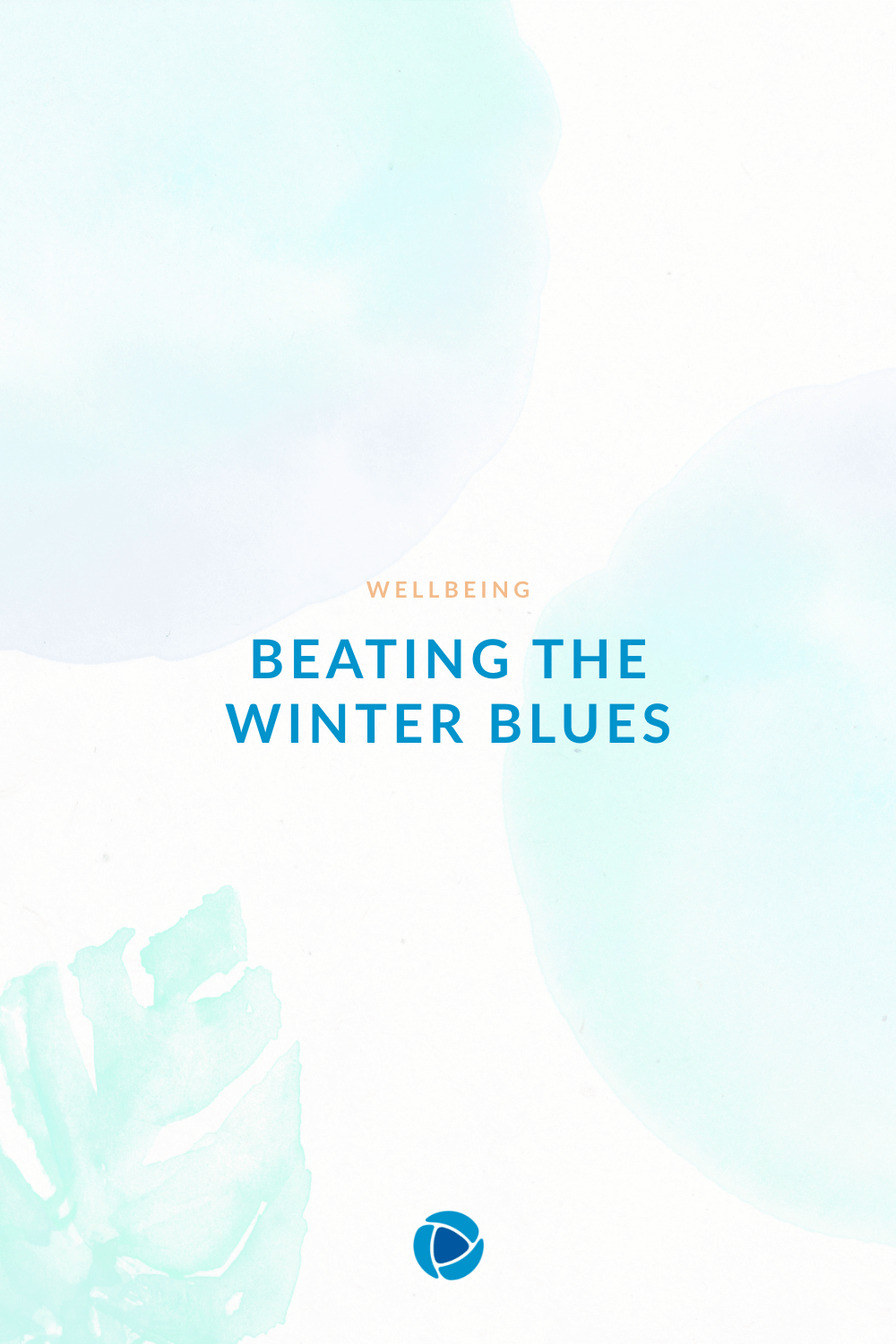
December 12, 2020
Beating the Winter Blues
It’s that time of the year again; winter begins, Christmas approaches and the days are shorter. It’s common to be affected by changing seasons and weather or to have times where you feel less comfortable. Christmas holidays are usually portrayed as a time of happiness where many of us are surrounded by loved ones, but for some people, it can be a period of painful reflections, sadness and loneliness. These feelings typically last from November through December, and are often referred to as the ‘holiday blues’ or ‘winter blues’. Even those who love Christmas can also experience the blues, especially about the upcoming holiday, when there is so much uncertainty about the pandemic, lockdown restrictions and general lack of clarification in spending time with our families. Some people may experience feelings of guilt and anxiety as they can’t afford to spend money on presents and this feeling may be very significant to the majority of people this year. Research commissioned by YouGov (2019), shows that over 2 in 5 people in the UK feel stressed during the festive season, with a quarter of the population stating that it has a ‘negative effect’ on their wellbeing. Anxiety has affected 3 in 10 people, while a quarter have experienced feelings of depression.
Causes of ‘winter blues’ may include:
- Financial difficulties
- Stress – Holidays can be hectic and make celebrations more difficult to enjoy.
- Being away from family and friends can make the holidays seem lonely.
- Strained familial relationships
- Exhaustion
- Nostalgia for past holidays
While the symptoms of the winter blues are milder and tend to usually go away once the festive period is over, you should take the right steps in improving your mental health and wellbeing. The symptoms can worsen and develop into seasonal affective disorder (SAD), also known as ‘winter depression’. SAD symptoms can include:
- A persistent low mood
- A loss of pleasure or interest in normal everyday activities
- Irritability
- Feelings of despair, guilt and worthlessness
- Feeling lethargic and sleepy during the day
- Sleeping for longer than normal and finding it hard to get up in the morning
It’s important to take these signs seriously as with other types of depressions. The good news is that with winter blues and SAD, there are plenty of research-based actions that you can take, to ease your symptoms and improve the way that you feel.
1. Practice self-care
Think about what you eat
It’s easy to turn to comfort food especially when you’re feeling low. Your body might be craving more carbohydrates to get you through. This can be extremely difficult during Christmas as we will be surrounded by many different, delicious meals and snacks. Try to be more conscious about your eating habits during the winter months. Eating small, well-balanced meals throughout the day with plenty of fruit and vegetables will help you keep your energy levels. Sticking to complex carbs such as oatmeal, whole grains, brown rice can boost your serotonin levels without the subsequent sugar crash.
Hygiene
Personal hygiene is important and this can be affected by low mood. Try to be conscious and create a routine. When you wake up in the morning, go shower, brush your teeth and get dressed.
Get plenty of sleep
We are creatures of habit, we struggle with adjusting to changes in sleep pattern, so stick to a sleep schedule as much as possible. Try to go to bed and wake up at the same time each day. Create a pre-sleep routine if you are struggling. Winding down before bed is one of the best ways to get your sleep back on track. By creating a pre-sleep ritual, you’re establishing a clear association between certain activities and sleep. For instance, if you read before heading to bed, your body knows that reading at night signals sleep time.
Avoid alcohol
Alcohol provides temporary relief and numbs the emotional pain, but it can also exaggerate some feelings and make you feel more angry or aggressive towards certain people and situations. It can also make you feel more depressed.
Keep active!
Exercise can have mood-lifting effects. Even going for a walk can improve the way you feel. If it’s hard to motivate yourself, perhaps having a workout partner may make you more likely to enjoy exercise.
Keep yourself occupied this winter
Try new hobbies like painting, knitting, cooking or calligraphy and make those cards/gifts even more special this Christmas.
2. Learn ways to relax
Mindfulness and Meditation
Techniques as such are essentially attention training exercises that help us understand when our attention is being captured by certain thoughts and learn to let them go or accept them without feeling that you have to act upon them. Practising mindfulness can increase self-awareness and build resilience over time!
Breathing
Calm breathing is the quickest way of reducing stress and anxiety. Take a deep breath in for three seconds, hold it for three seconds and breath a full breath out. Do this for 3-5 minutes. This exercise can be done anywhere as long as you’re comfortable!
Get as much natural light as possible
Open your blinds/curtains at home to let those sun rays in. Spend some time on the balcony or in your garden if you can. You could go for a walk around your neighbourhood or a park to have a change of scenery.
Spending time outside is good for mental and physical health
Try to focus on some aspect of nature. This could be the birds, the falling leaves or even the sunlight in your local park or field.
Listen to music!
Listen to some Christmas songs to get ready for the festive season. This could include more upbeat songs such ‘All I Want for Christmas is You’ by Mariah Carey and more downer songs such as ‘ White Christmas’ by Bing Crosby. These can evoke feelings of comfort and relaxation. Listening to music in general improves your mood and boosts happiness, so these don’t have to be Christmas songs at all. Anything that boosts your mood is good enough!
3. Journalling
If you have realised that symptoms follow a pattern you can try to distinguish what triggers them so that you can prevent certain mood changes from happening in the future. Write down your symptoms and feelings. Note down what makes you feel better or worse. Once you know the triggers, you’ll be able to avoid stressful situations and plan some time for relaxation in advance.
4. Plan ahead
Create a schedule ahead of Christmas and plan how you are going to spend your time each day. Whether it’s stocking up on things you need, preparing your recipes early, having a plan will help you remain calmer and organised during the festive season. Also, remember to have some ‘me’ time every day!
5. Talk to someone
Ask for help if you think you need it. Some people might feel awkward about offering their help. They might not know how to approach you or how to help you. If you would like some company or support during Christmas, make sure to ask for it. Reach out to your friends, family, colleagues to share your feelings with them. This can be through the phone, Facetime/Skype or a walk in the park.
Other help available
If you have suicidal thoughts or intentions to harm yourself you should seek support immediately. You may contact your GP, the NHS (111) or Samaritans for confidential 24h crisis support (116 123).
More support charities can be found here:
https://www.nhs.uk/conditions/stress-anxiety-depression/mental-health-helplines/
If you liked this post about Beating Winter Blues, you may like:
Topics mentioned in this blog post:
Get the latest news with
Thrive Unplugged!
Sign up to our monthly newsletter to receive the latest news on everything Thrive Mental Wellbeing.








